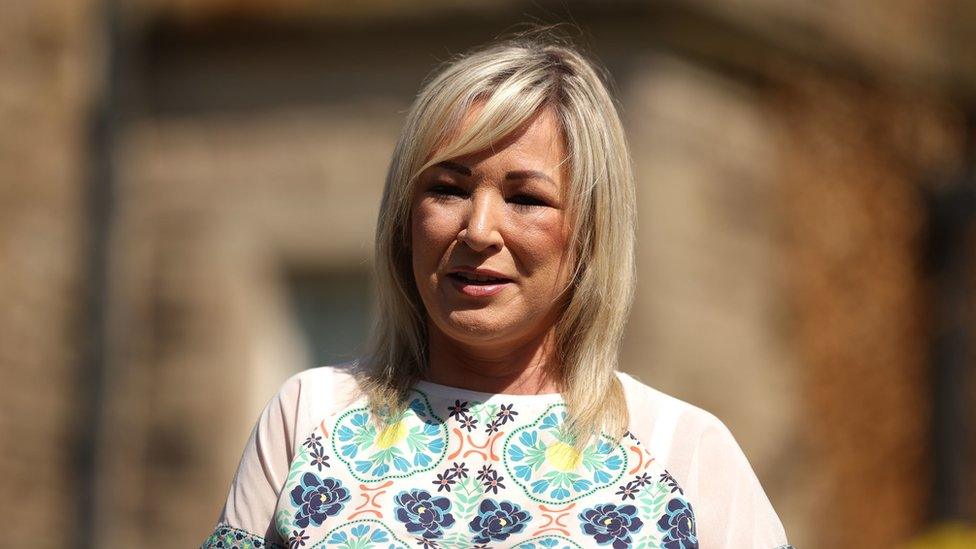Q&A: Why does Northern Ireland need to raise more cash?
- Published
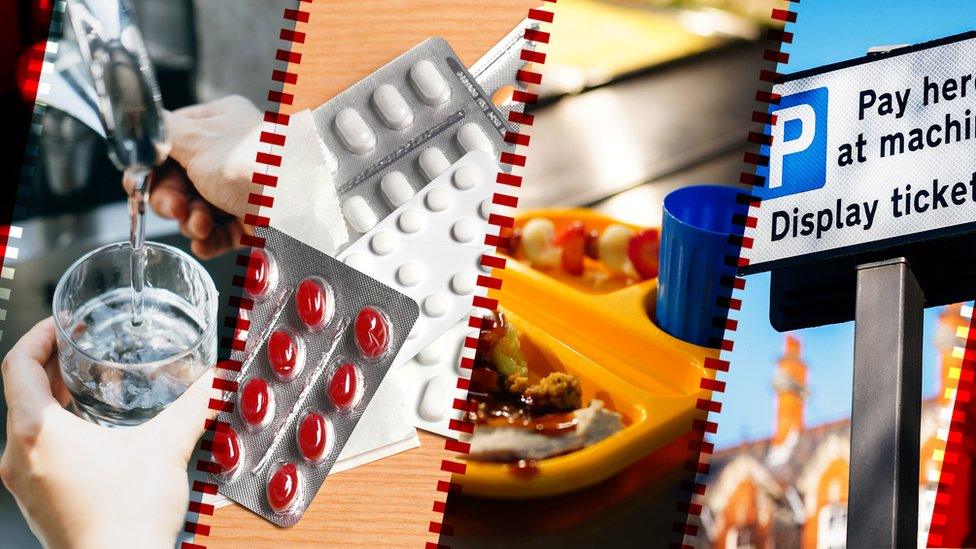
Water charges, prescriptions costs, school dinners and parking charges are all being looked at as possible ways to put more money in Northern Ireland's coffers
There's been much talk over the past few weeks about trying to increase the amount of cash in Stormont's coffers, at a time when budgets are under severe strain.
Controversial proposals like water charges and increasing the cost of school dinners, in order to raise more public revenue, have made headlines.
But imposing those types of new charges would be complicated, both politically and practically.
BBC News NI looks at what's really going on with the issue.
What can Stormont currently do to raise money?
When power-sharing is up and running, the only significant revenue raising undertaken by Stormont is regional rates - a property tax paid by households and businesses.
Stormont has been without a functioning assembly and executive for 18 months after the Democratic Unionist Party (DUP) pulled out as part of a protest against post-Brexit trading arrangements for Northern Ireland.

In the absence of a sitting assembly, a regional rates increase was decided by the Northern Ireland Office
In the absence of an executive, the Secretary of State Chris Heaton-Harris stepped in and announced a 6% rise in this year's regional rate.
Income tax powers are not currently devolved to Stormont although last year the Fiscal Commission recommended this should happen as a means of widening devolved tax and spending powers.
They pointed to Scotland and Wales being able to vary rates of income tax after powers were handed over some years ago.
But this idea would have to wait until after a new executive is formed by the parties.
So why the talk about other Stormont money-raising ideas?
Northern Ireland doesn't have enough money to support everything it is paying for.
The secretary of state passed this year's Stormont budget because local politicians cannot do it without a functioning assembly and executive.
However, Stormont civil servants, who are now running departments but with restricted decision-making powers, have been left to find £800m to plug a financial shortfall and impose cuts to some services.
Chris Heaton-Harris wrote to civil servants in June asking them to provide information about ways of raising more public revenue.
He said this was to help stabilise Stormont's future finances.
He has since received that document, which contains detail from each of Stormont's nine departments about different options.

Proposed measures drawn up by civil servants include increasing the cost of paid school dinners and home-to-school transport
What are those options?
Some 40-plus areas were drawn up by civil servants as a means of raising additional money.
They range from increasing the cost of paid school dinners and home-to-school transport, to raising the price of MOT and driving test fees as well as street parking charges.
But more contentious measures like introducing water charges and bringing back fees for prescriptions have also been mentioned.
Northern Ireland is the only part of the UK where water is currently not subject to a separate tax for households, though it was almost introduced back in 2007.
The then-Labour government was preparing to press ahead with water bills but paused it after a deal was struck between the Democratic Unionist Party (DUP) and Sinn Féin to form a power-sharing coalition together. , external
Since then, local political consensus has largely been opposed to bringing in water charges.
So what's the reaction to these latest proposals been?

Northern Ireland parties remain sceptical of the secretary of state's intentions
No politician wants to take the flack for potentially piling more costs on the public when purse strings are already tight.
The parties have distanced themselves from the measures, with Sinn Féin accusing the government of using the issue as a stick to pressure the DUP into ending its now 18-month boycott of the institutions.
The DUP has argued that rather than raising more revenue, the public funding model for Northern Ireland needs reformed.
It is known as the Barnett formula, which sees extra funding based on population size allocated automatically to Northern Ireland, Scotland and Wales when extra funding is made available in England.
Whether a request to change it is explored by the government in future remains unclear.
But, in the meantime, parties remain sceptical about the secretary of state's intentions on revenue raising, given he's said any decisions on what to impose would rest with future Stormont ministers.
What difference would new revenue raising make?

The Fiscal Council estimates that water charges could raise several hundred million pounds
The Fiscal Council estimates that water charges could raise several hundred million pounds, while smaller measures like prescription fees could bring in £20m.
Former civil servant in the Department of Finance, Dr Andrew McCormick, has said there is a need to be "realistic" about revenue raising.
"No-one welcomes paying more for things, but it is really important they're looked at," he told BBC News NI.
"Big ticket items will bring large levels of revenue, so there is a case for concentrating on them rather than on the areas where the return wouldn't be that large."
A public consultation on whether to scrap free bus and train passes for people aged 60 and over in Northern Ireland closed on Thursday.
It's thought doing that could raise £30m but those opposed to the idea say the societal costs of scrapping it would outweigh the immediate financial gain.
How close are we to any of this happening?
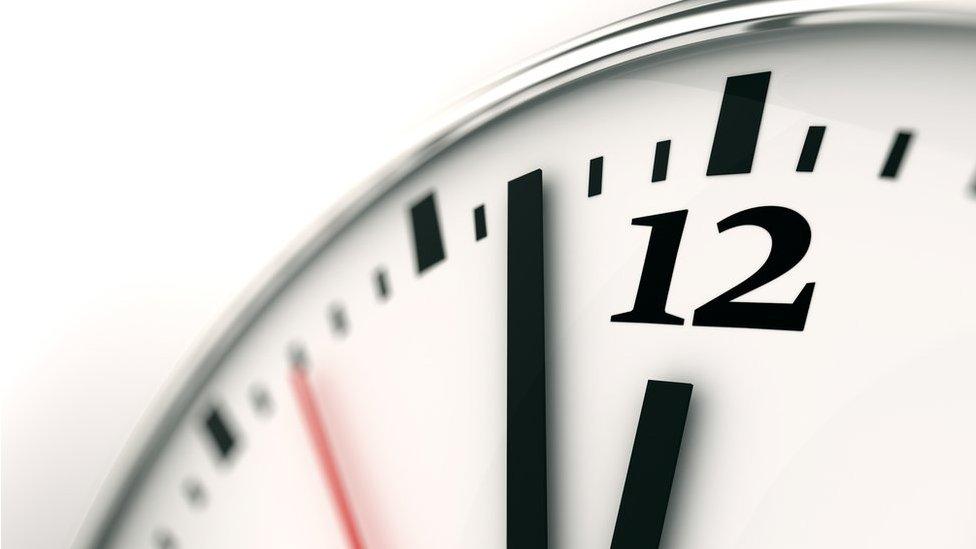
We may not see any of these potential decisions being made any time soon
There is no sign of Stormont coming back soon and if or when it does, chances are few politicians will want to dive straight into these sorts of conversations.
Not to mention reaching agreement on such measures from within a multi-party executive would be challenging.
It is possible that in the event the DUP agrees to return to Stormont, the government may only provide an extra bung of cash if the parties agree to progress some revenue-raising measures.
In Stormont's fledgling days back in 2000, then SDLP Finance Minister Mark Durkan spoke in the assembly of a need to "graduate from bidding...to making actual decisions and choices".
Twenty-three years on it seems that advice remains relevant.
- Published16 August 2023
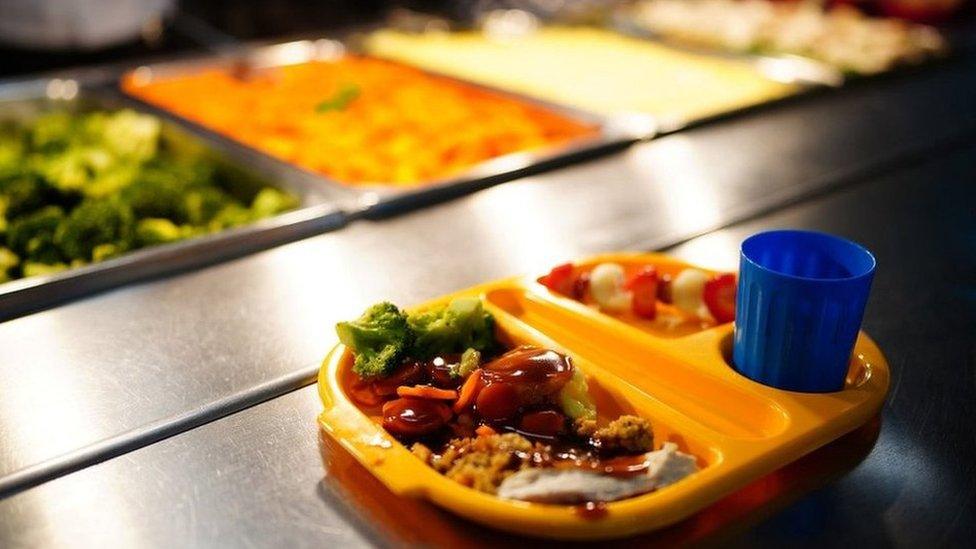
- Published10 July 2023
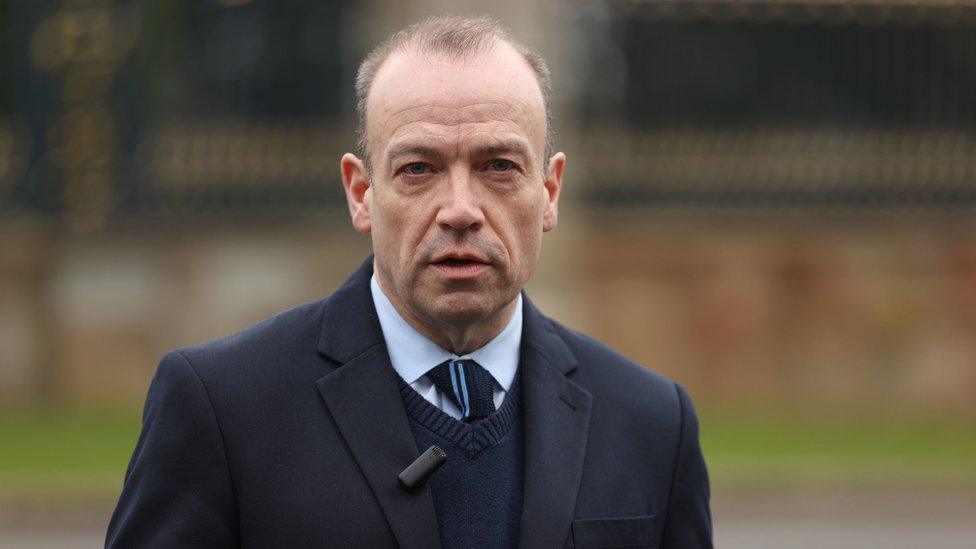
- Published15 June 2023
